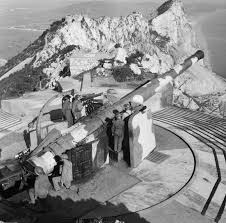
Introduction
Gibraltar, a small British Overseas Territory located at the southern tip of the Iberian Peninsula, is known for its strategic importance and unique cultural heritage. Its position at the gateway to the Mediterranean Sea has made it a focal point for trade, military strategy, and tourism. The ongoing political discussions regarding its sovereignty also underscore its relevance in contemporary geopolitics.
Historical Significance
Historically, Gibraltar has been a significant military stronghold. Its iconic Rock of Gibraltar has served as a natural fortress since ancient times. In 1704, during the War of Spanish Succession, it was captured by British forces, and in 1713, it was officially ceded to Britain under the Treaty of Utrecht. Since then, Gibraltar has been at the centre of numerous conflicts and negotiations concerning its sovereignty.
Current Events and Political Landscape
In recent years, Gibraltar has re-emerged in headlines primarily due to effects of Brexit. The 2016 Brexit referendum led to renewed discussions regarding the territory’s future, given its proximity to Spain and the complexities involved in its governance. Gibraltar voted overwhelmingly (96% in favour) to remain part of the European Union, highlighting a potential conflict with Britain’s decision. In March 2023, UK and Spanish officials began discussions to ease border restrictions and enhance cooperation, which may lead to a new agreement to improve cross-border movement.
Cultural Diversity
Gibraltar boasts a rich tapestry of cultures, representing a fusion of British, Spanish, and Moroccan influences. This diversity is reflected in the territory’s festivals, languages (both English and Spanish are widely spoken), and culinary traditions. The annual Gibraltar Music Festival and the National Day celebrations in September showcase the local culture and foster community spirit.
Tourism and Economy
Tourism plays a crucial role in Gibraltar’s economy, with over 15 million visitors arriving annually. Tourists flock to attractions such as the iconic rock, the Barbary macaques, and St. Michael’s Cave. The retail sector is also robust, with many visitors taking advantage of Gibraltar’s tax-free shopping privileges. The government continues to invest in tourism infrastructure to attract more visitors in the coming years.
Conclusion
Gibraltar remains a significant point of interest not only due to its stunning landscapes and rich history but also because of its ongoing political situation and cultural identity. As discussions continue around its future and relations with both Britain and Spain, Gibraltar is poised to remain in the spotlight. For readers, staying informed about Gibraltar’s developments is essential, as these changes may have broad implications for the region and beyond.
You may also like

The Role of Metro Systems in Modern Cities

Costa Coffee’s Commitment to Sustainability in 2023
